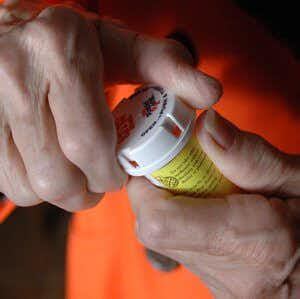
Which Popular Drugs Can Do Unexpected Harm?
Occasionally a medication that has been on the market for some time is found to do unexpected harm. That happened with Vioxx, and led researchers to take a closer look at all NSAIDS.
A large trial showed that the NSAID pain reliever celecoxib (Celebrex) is no worse than naproxen in raising the risk of heart attacks. Or does that mean that naproxen is no better than celecoxib? We talk about the evidence that NSAIDs can increase your chance of a heart attack. What other approaches could you take to alleviate chronic arthritis pain without causing unexpected harm?
Heartburn Medicines and the Risk of Stroke:
People usually think of the acid-suppressing medications known as proton pump inhibitors (PPIs) as extremely safe. The FDA has approved several of them (Nexium, Prevacid, Prilosec) for OTC use. But clinicians keep reporting new adverse reactions. They may be uncommon, but they are alarming.
The latest connection is between PPI drug use and the risk of stroke. The research was conducted in Denmark and reported at the American Heart Association meeting in New Orleans in November.
An Alzheimer’s Disease Drug Failed its Test:
A recent study of a drug to treat Alzheimer’s disease ended in failure. Many researchers were not surprised, since the track record for this type of medication has been undistinguished at best. Murali Doraiswamy, MD, explains the research and describes the steps each of us can take to help protect ourselves from dementia.
Join the Conversation:
We are interested in your stories and questions about the latest health news. What do you do to ease your joint pain? How about heartburn? Do you rely on a PPI, or do you have a remedy that works for you? Ask your question or share your story: Call 888-472-3366 between 7 and 8 am EDT on December 10, 2016, or email radio@peoplespharmacy.com
This Week’s Guest:
Murali Doraiswamy, MD, is Professor of Psychiatry and Medicine at Duke University Health System. He is a member of the Duke Institute for Brain Sciences and directs a clinical trials unit that has developed products to treat neurological disorders. Dr. Doraiswamy is co-author of The Alzheimer’s Action Plan. He has also served as an advisor to leading government agencies, healthcare businesses, and patient advocacy groups.
Listen to the Podcast:
The podcast of this program will be available the Monday after the broadcast date. The show can be streamed online from this site and podcasts can be downloaded for free for four weeks after the date of broadcast. After that time has passed, digital downloads are available for $2.99. CDs may be purchased at any time after broadcast for $9.99.

